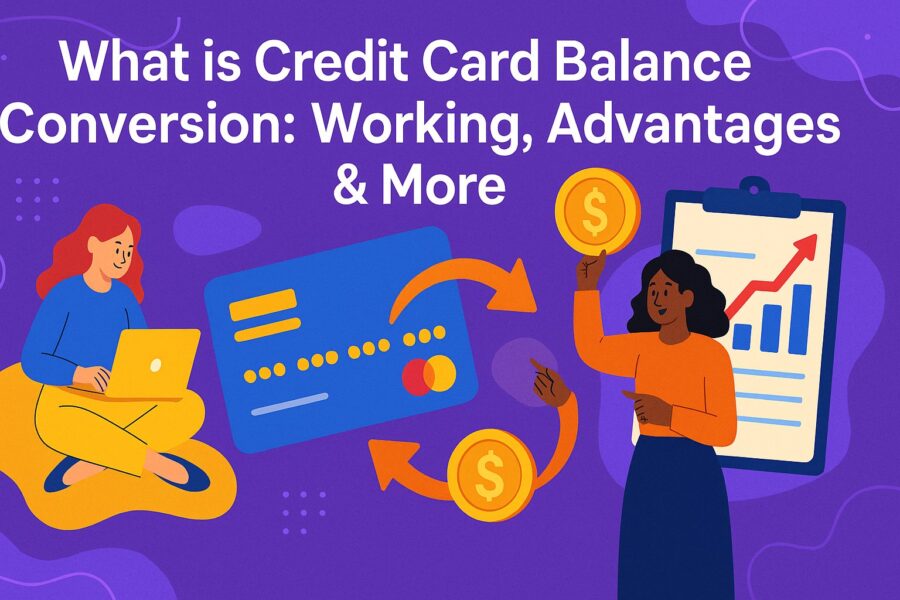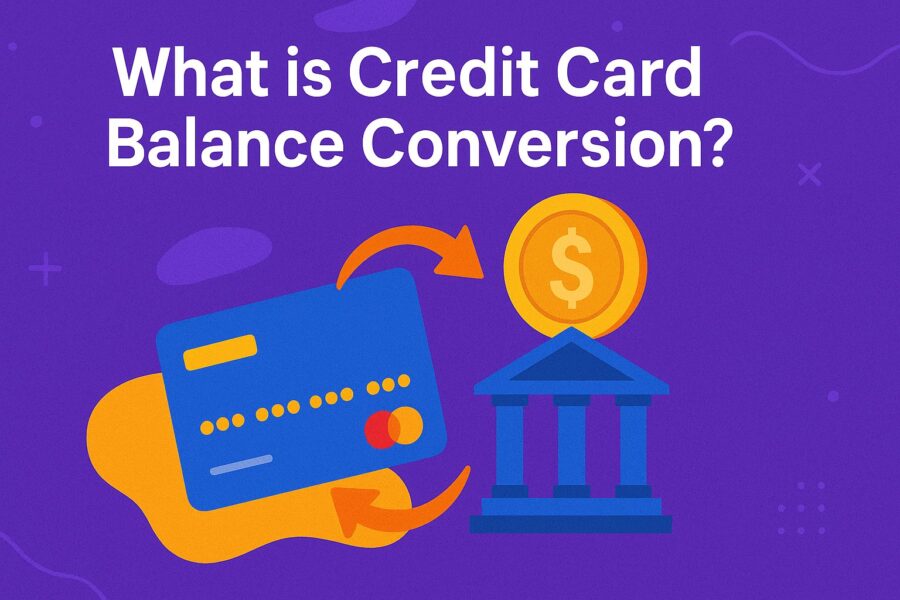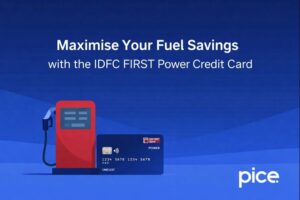What is Credit Card Balance Conversion: Working, Advantages & More
- 24 Oct 25
- 6 mins

What is Credit Card Balance Conversion: Working, Advantages & More
Key Takeaways
- Credit card balance conversion allows you to turn your large credit card dues into easy EMIs, making high-value payments manageable.
- It is especially helpful during financial emergencies or when facing big one-time expenses like hospital bills, tuition fees, or vacations.
- Different banks offer custom repayment tenures and interest rates, usually lower than regular credit card interest charges.
- Choosing balance conversion can help you avoid debt traps and reduce financial stress by turning lump-sum bills into predictable payments.
- While it offers many benefits, keep in mind processing fees and temporary credit limit reductions before opting for balance conversion.
Did you know that more than 81% of the average Indian population spends less than ₹200 in a day? So, a sudden large bill can really put things in a financial fix for you. This can be anything from large hospital bills to bills from your family vacations.
One thing that can help you in managing these large bills through your credit cards is credit card balance conversion. So, keep reading to know what is credit card balance conversion, how it works, its advantages and more.
What is Credit Card Balance Conversion?

Credit card balance conversion is a money management tool that you can use to pay large bills. It allows the conversion of your outstanding Credit Card balance into equated monthly instalments (EMIs).
When Do You Need Credit Card Balance Conversion?
With its ability to divide up your bill across future months, it allows you to make the expenditure more affordable. Thus, credit card balance conversion can come in very handy:
- In times of unexpected financial emergency, or
- When you have to pay a considerable expense.
Some of the situational instances can be:
- Paying for children’s annual school or college fees
- Emergency medical treatment
- Home renovation or furnishing
- Relocation or shifting costs
- Booking flight tickets for an international holiday
How Does Credit Card Balance Conversion Work?
When you apply for Credit Card Balance Conversion with your bank, they will instantly convert all of the outstanding balances of your credit card into EMIs. Then you can settle the remaining unpaid bill over a repayment period, which will be determined by your issuer.
The bank or the issuer will set an interest rate with the EMI option as well. Different banks in India have their own interest rates for the ‘credit card balance conversion’ option. For instance, HSBC offers 14.49% to 21% p.a., and IDFC First Bank offers 1% p.m.
Further, they will also offer you to select your repayment plan so you can select the plan that suits your budget and payment tenure requirements.
Exemplary Breakdown of Credit Card Balance Conversion
A person (XYZ) swiped her credit card to cover ₹60,000 in medical expenses for her mother’s treatments. When the bill arrived, she realised that if she paid the full amount in one go, it would strain her monthly budget.
So, she considered paying only the minimum amount of ₹3,000. However, the remaining balance would then attract interest at around 3% per month, slowly adding up and turning into a much bigger debt in the future.
So, instead, she chose to convert the outstanding bill (unpaid bill) into a 12-month EMI plan at 18% annual interest. With this, her payments became manageable at around ₹5,500 per month, including interest.
Thus, although she paid a processing fee, the predictable EMIs allowed her to manage other household expenses without falling into a debt trap.
5 Pros of Credit Card Balance Conversion
- Avoiding Debt Trap: You can avoid falling into a debt trap by opting for a balance EMI conversion. Falling into a debt trap can lead to long-term financial strain.
- Improved Money Management: You can manage your finances in a better way through EMI, as it will break down your payment into smaller bits to handle easily.
- Flexible Repayment Options: Banks offer you options to choose from for your repayment plan. This lets you keep things manageable.
- Reduced Financial Stress: In the instance when balance conversion helps you out, it reduces your financial strain and increases your financial well-being.
- Lower Interest Rates: Credit card interest rates are usually higher than the interest rates of the EMI. So, balance conversion also helps you save money.
💡Pay your credit card bills in an easy and secured way and experience smooth transactions with the PICE App.
2 Cons of Credit Card Balance Conversion
- Impact on Credit Limit: Your credit limit can take a bit of a hit until your debt is repaired.
- Additional Fees: There are a few banks that can charge prepayment penalties or processing fees. So make sure to read all of the terms and conditions carefully.
Conclusion
When you have a large bill to pay, knowing what is credit card balance conversion can be very useful. It can help you pay all of your outstanding credit card bills over time and reduce the financial strain on you. Going for credit card balance conversion is also a great option due to all of the advantages that it provides, such as lower interest rates, instalment plan options and more.
 By
By 

















